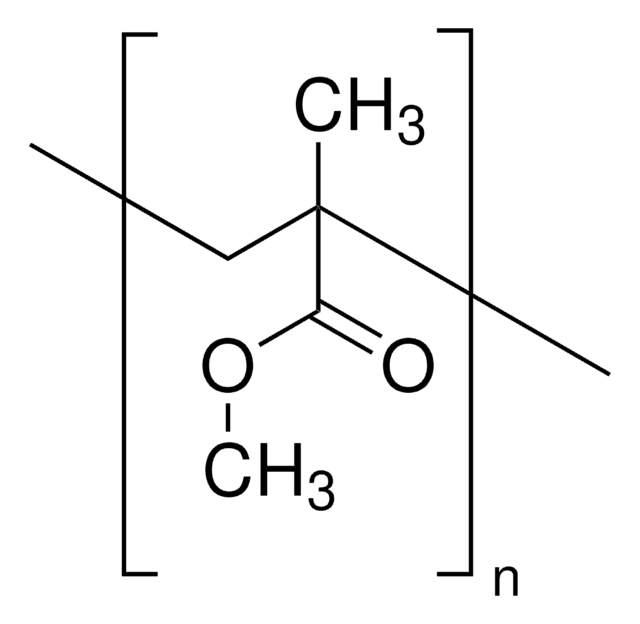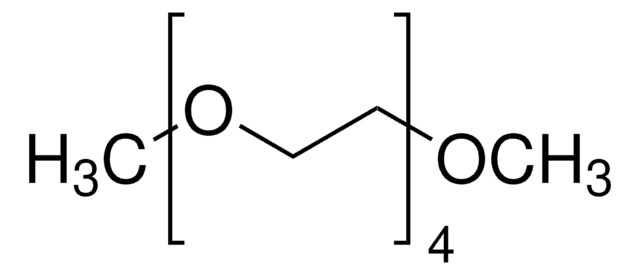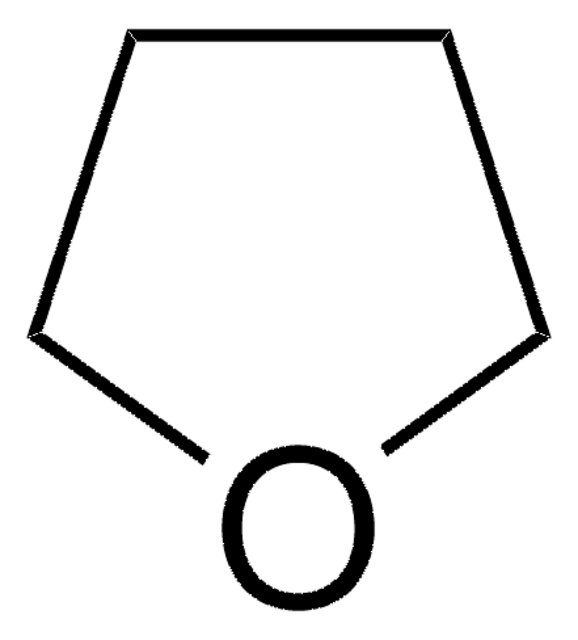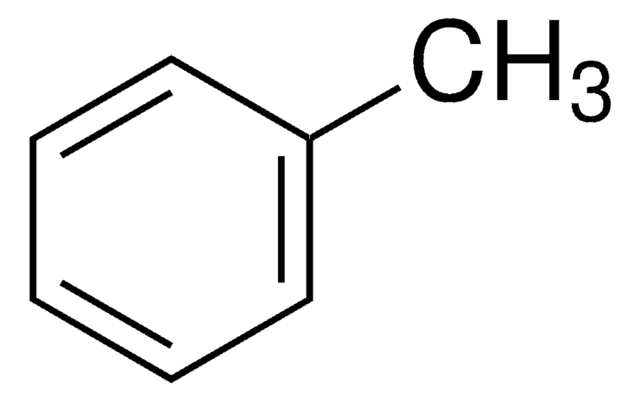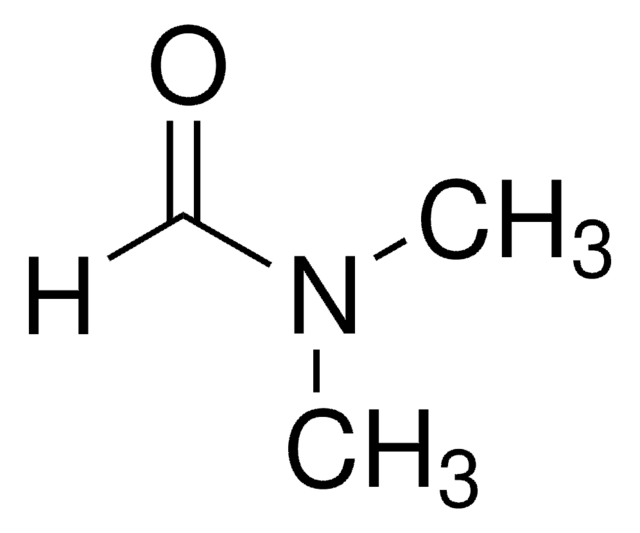200336
Poly(methyl methacrylate)
average Mw ~15,000 by GPC, powder
Synonym(s):
PMMA, Poly(methacrylic acid methyl ester)
About This Item
Recommended Products
form
powder
Quality Level
autoignition temp.
580 °F
mol wt
average Mw ~15,000 by GPC
transition temp
Tg (DSC) 105 °C (midpoint)
solubility
dichloromethane: 25 mg/mL, clear to hazy
density
1.200 g/cm3
InChI
1S/C5H9O2/c1-4(2)5(6)7-3/h1-3H3
InChI key
PMAMJWJDBDSDHV-UHFFFAOYSA-N
Looking for similar products? Visit Product Comparison Guide
Related Categories
General description
Application
- PMMA-titania hybrid optical thins films
- PMMA/polystryrene/clay nanocomposites
- PMMA/polyurethane/carbon black nanocomposites for methanol fuel cells
- acrylic glass
- implant in surgical specialties
- as spacer.
Storage Class
11 - Combustible Solids
wgk_germany
nwg
ppe
Eyeshields, Gloves, type N95 (US)
Certificates of Analysis (COA)
Search for Certificates of Analysis (COA) by entering the products Lot/Batch Number. Lot and Batch Numbers can be found on a product’s label following the words ‘Lot’ or ‘Batch’.
Already Own This Product?
Find documentation for the products that you have recently purchased in the Document Library.
Customers Also Viewed
Articles
Professor Aran (Claremont University, USA) thoroughly discusses the engineering of graphene based materials through careful functionalization of graphene oxide, a solution processable form of graphene.
Developed in the last several years, fluorescence quenching microscopy (FQM) has enabled rapid, inexpensive, and high-fidelity visualization of two-dimensional (2D) materials such as graphene-based sheets and MoS2.
We will explore the technological advances that have contributed toward the progress of 3DP of tissue engineering scaffolds, current materials used to create 3DP scaffolds, and the challenges that remain.
Self-assembled monolayers (SAMs) have attracted enormous interest for a wide variety of applications in micro- and nano-technology. In this article, we compare the benefits of three different classes of SAM systems (alkylthiolates on gold.
Our team of scientists has experience in all areas of research including Life Science, Material Science, Chemical Synthesis, Chromatography, Analytical and many others.
Contact Technical Service